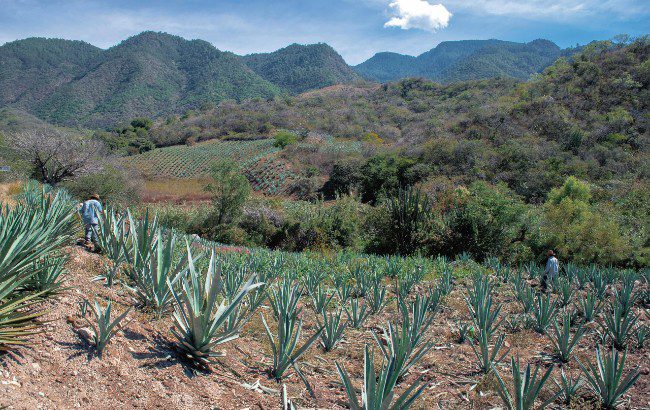Mezcal must challenge ‘irresponsible’ agave farming
The mezcal industry must avoid ‘irresponsible’ agave farming and wild harvesting to preserve the category’s future, a distiller has warned.

Juan José Méndez-León is a sixth-generation farmer and mezcal distiller. During Bar Convent Brooklyn, which took place from 13-14 June this month, Méndez-León hosted a seminar, called: Sustainability and innovation in mezcal production while honouring ancestral knowledge.
During his talk, Méndez-León warned how the increased popularity in mezcal, combined with no innovation on the supply side, would equate to “irresponsible progress”.
Méndez-León cautioned against the harvesting of wild agave, and agave younger than seven years old, warning these practices can be harmful to the environment and their neighbouring communities.
“Industrial mezcal is growing,” said Méndez-León. “I see this as a great opportunity. But we also need to take caution about how we grow while protecting our agave farms and communities.
“The reason I am calling for action and joint effort is so we can make more responsible mezcal production. I see two things: unsustainable farming practices and unsustainable production practices.”
Méndez-León highlighted a number of environmental issues regarding unsustainable farming practices: depletion of native vegetation, the harvesting of younger agaves, the use of chemicals, eroding top soil by over-farming, and monoculture (the practice of only growing one type of crop at one time in a specific field).
Further issues were raised regarding unsustainable production practices: inefficient use of maguey, fermentation boosters, excessive use of water, animal cruelty (such as the use of donkeys or horses to pull the tahona to crush the agave) and excessive manpower.
Méndez-León urged the industry to be aware of the use of unsustainable mezcal practices. He pointed out issues with over-farming more unusual agave species for mezcal production.
“Why do I only grow Espadín agave? For consistency, but also to honour my land, my community and the plant I am growing,” he added. “I am very serious about taking care of my top soil.”
Solutions
Méndez-León shared several pieces of advice he believes will help the mezcal industry as it grows, to protect agave farms and surrounding communities.
First of all, he highlighted the importance of allowing the agave to grow throughout its full life cycle, and avoiding the harvest of young agave.
Furthermore, farmers and producers should use by-products of distillation for compost and weed prevention, and plant agave on rested land.
Méndez-León also encouraged the planting of biodiverse corn and other crops to add nutrients and restore the soil.
“In conclusion, improving efficiency, innovation and sustainability in artisanal mezcal production is essential for the long-term viability of the industry and the preservation of our cultural heritage,” Méndez-León said.
“As we move forward, let us reaffirm our commitment to honouring our ancestral knowledge, respecting our resources, and building a sustainable future for artisanal mezcal.”
In 2022, Impact Databank reported mezcal volume sales in the US had increased nearly six-fold in the last six years.
Related news
Trade groups hit out at EPR’s high glass fees
